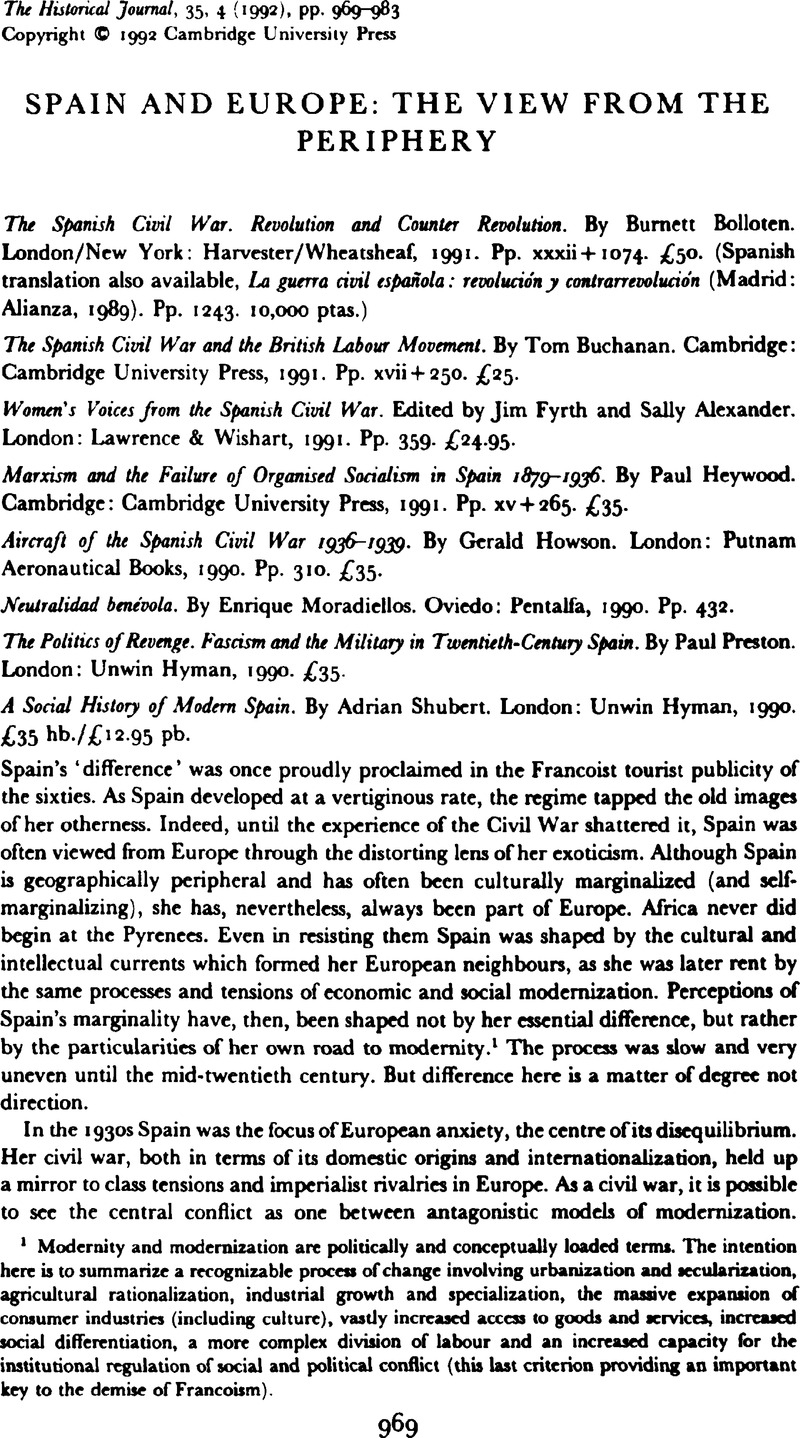Article contents
Spain and Europe: the view from the periphery
Published online by Cambridge University Press: 25 March 2010
Abstract

- Type
- Review Articles
- Information
- Copyright
- Copyright © Cambridge University Press 1992
References
1 Modernity and modernization are politically and conceptually loaded terms. The intention here is to summarize a recognizable process of change involving urbanization and secularization, agricultural rationalization, industrial growth and specialization, die massive expansion of consumer industries (including culture), vastly increased access to goods and services, increased social differentiation, a more complex division of labour and an increased capacity for the institutional regulation of social and political conflict (this last criterion providing an important key to the demise of Francoism).
2 Cf. Little, Douglas, Malevolent neutrality. The United Slates, Great Britain, ami the origins of the Spanish Civil War (Ithaca/London, 1985).Google Scholar Also his article, ‘Red scare, 1936: Anti-Bolshevism and the origins of British non-intervention in the Spanish Civil War’, Journal of Contemporary History, XXIII, 2 (04 1988)Google Scholar.
3 For the chequered history of publication (in English and Spanish), see Aróstegui, Julio, ‘Burnett Bollotcn y la Guerra Civil Españiola: la persistencia del “Gran Engafio”’, in Historia Contemporánea (Bilbao), no. 2, 1990.Google Scholar For Burnett Bolloten himself, Southworth, Herbert R.'s review, in ACIS Journal (Association for Contemporary Iberian Studies), IV, 2 (autumn 1991)Google Scholar.
4 Payne, Stanley, in European History Quartely, XXII, 1 (01 1992)Google Scholar.
- 1
- Cited by


